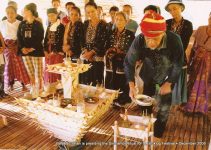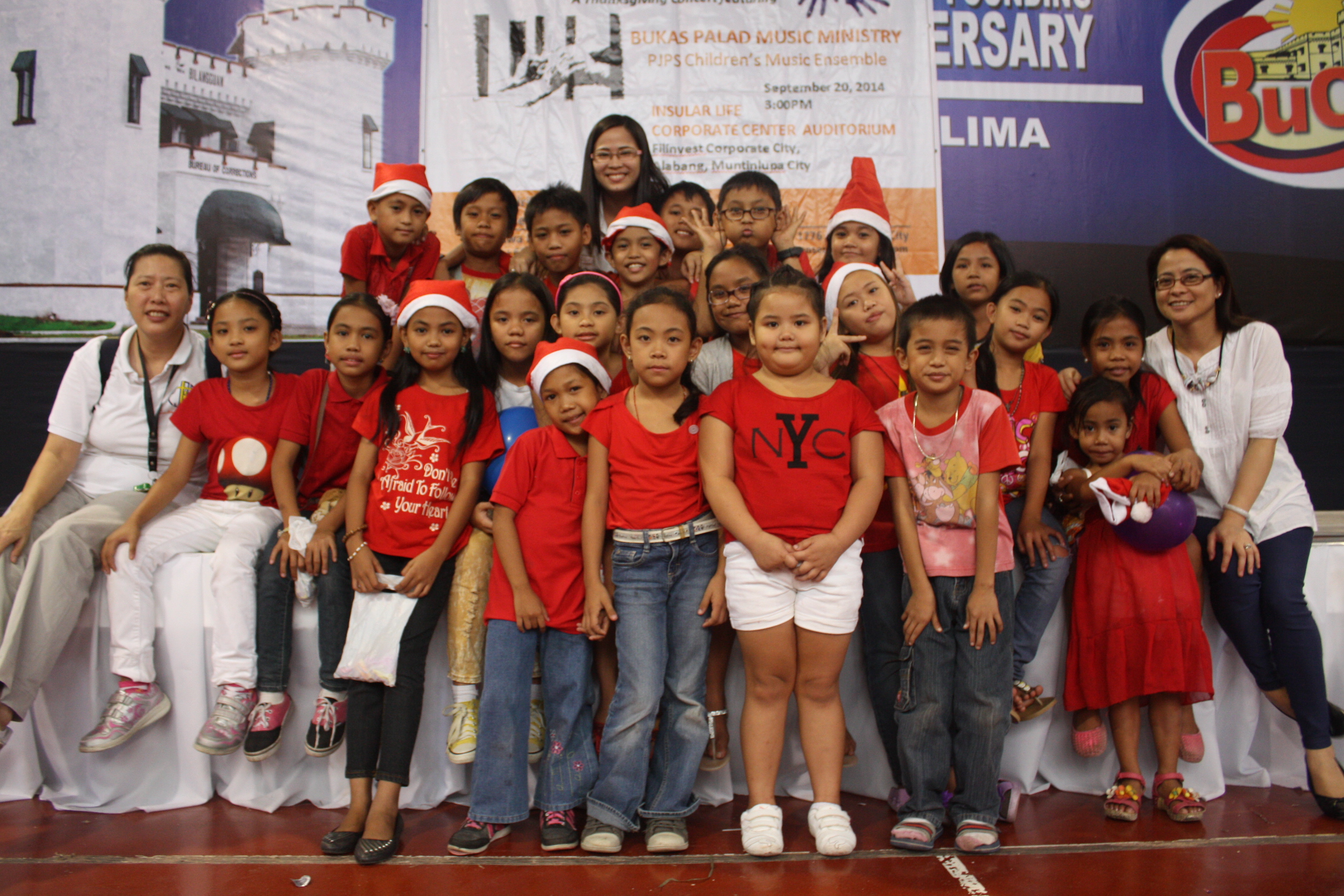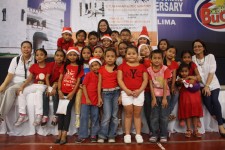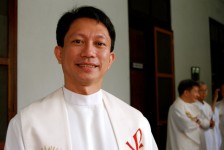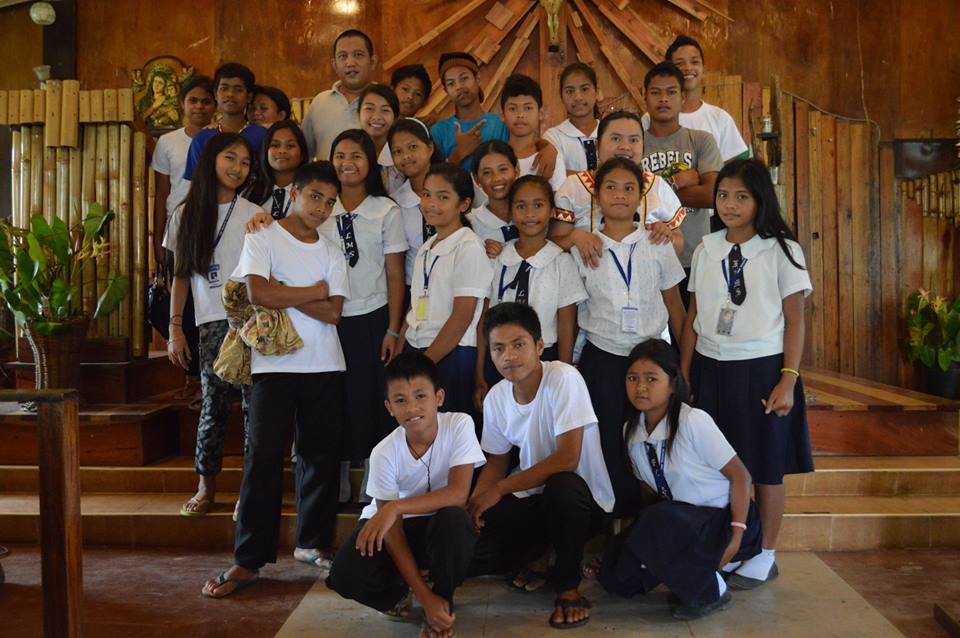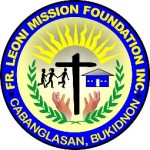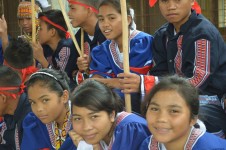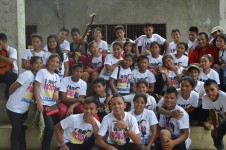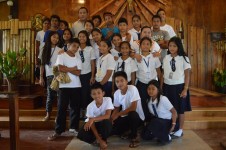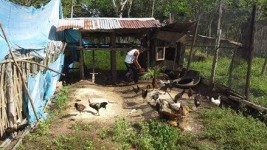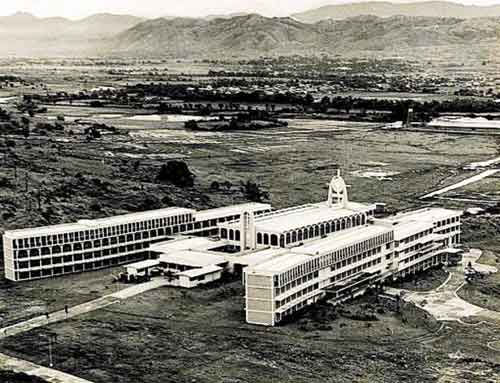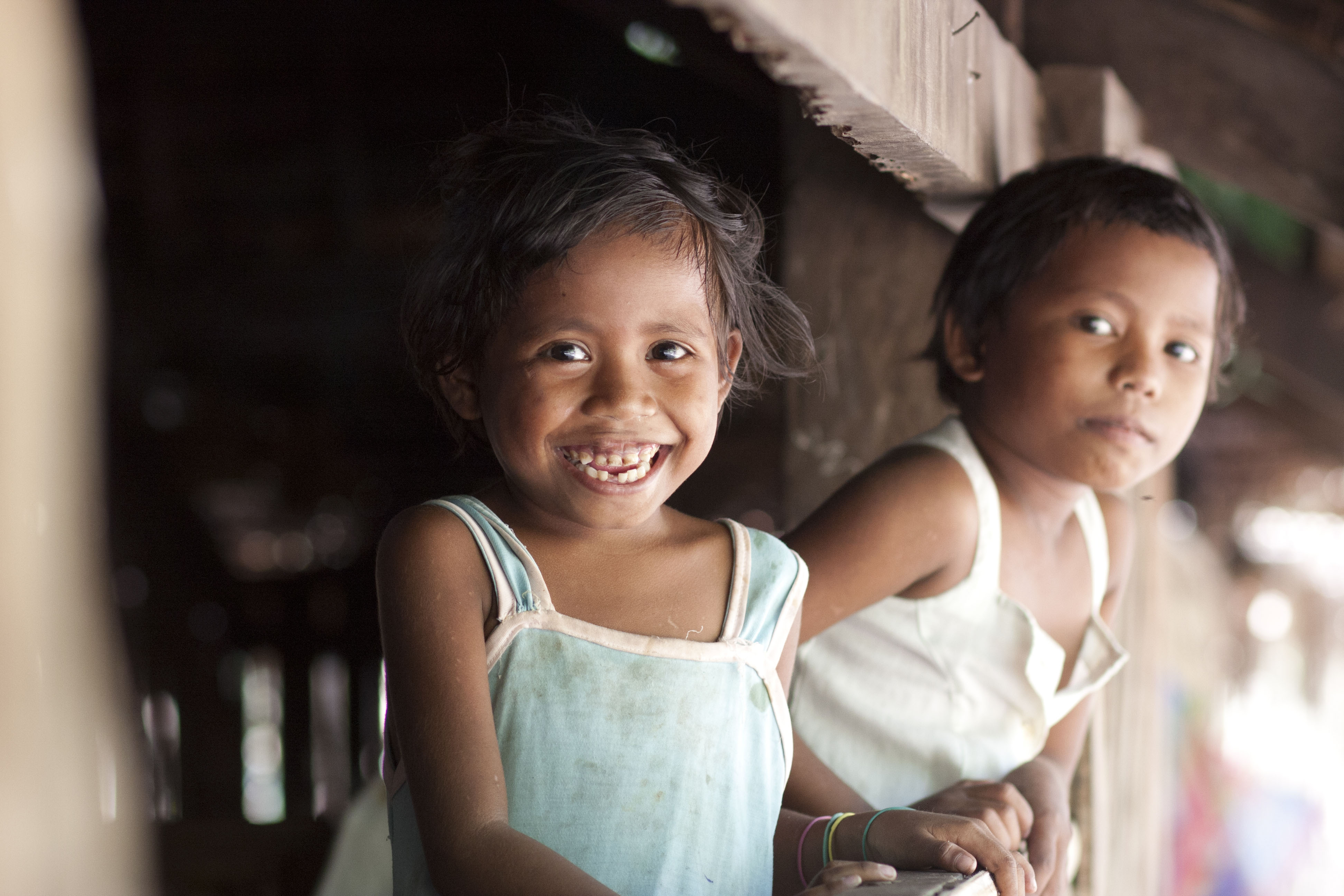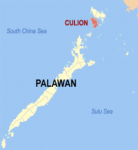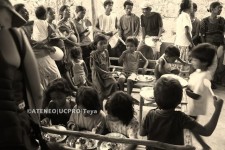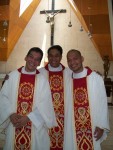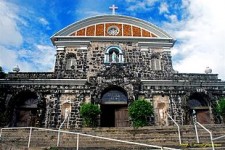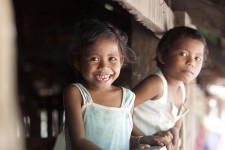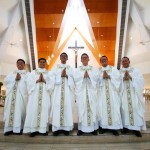Dear Friends of SIHS:
I wish to share with you some updates regarding our mission.
This is certainly not complete but it’s just to give you an idea about some of the things going on in Zamboanguita:
1. Parish- a new chapel is being constructed for the community in Purok 6, Silae- one of our most vibrant and active parish communities. They have taken turns to assist the paid laborers and feed them. They have raised a substantial amount to supplement what was raised for the construction. The foundations and walls have been laid down, the next step is to put the roofing so that they could now have their services there instead of the makeshift structure they have been using for the past two years.
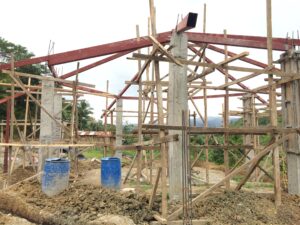
Meanwhile, the rest of the parish is preparing for the beginning of Lent on Wednesday (March 6, 2019). There is a proposal to initiate a Sunday school for the little children in the parish. We could mobilize the older youth and share with them Fr. Martin Licup’s new book Sunday Gospel for Kids as a resource. This would be a good Year of the Youth activity.
A donor has donated a new bell for the parish. We have reinforced our bell tower to accommodate this wonderful addition to our church. We are hoping to hear it ring for the first time soon.
2. St. Isidore HS- The school will be celebrating its 28th foundation day on March 12 by holding alternative classes on that day. We have invited several speakers to give talks on topics such as Disaster Risk Reduction, Barangay Governance, What Really Happens at Mass, HIV/AIDS awareness, and many more, including a showing of Ditsi Carolino’s Bunso (with no less than the director leading the discussion afterwards). During the Mass on that day, we will specifically praying for all our benefactors.
SIHS recently participated in two inter-school sports competitions. The G12 students completed their required 80 hour work immersion in Xavier University as student assistants in the various offices and feedback has been very good from both ends.
The G10 students completed the retreat in the Jesuit Retreat House in Malaybalay. Both G10 and G12 students are excited for the coming Junior Senior Promenade, with prom gowns flown-in from donors from Manila. Barangay Zamboanguita has asked the school to represent it in the coming street dance competition for Malaybalay’s Charter Day celebration on March 16. We also held our Parents Day on the same day as our Third Convocation. Instead of inviting a guest speaker, we showed the film Magnifico which everyone enjoyed. We also held a Family Got Talent competition.
Graduation and Completion ceremonies will be held on March 29. Our guest speaker will be Jason Menaling, an alumnus who has had the good fortune of meeting Pope Francis in Rome because of this work in Environmental Science for Social Change.
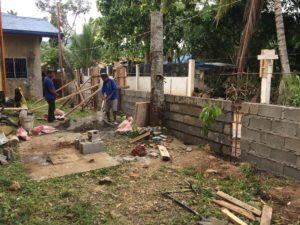
We are finally close to completing the cementing of the school walls, thanks to the PTA funds. We got inspected by the fire department and some violations were pointed out. We shall be working on them within the month. Meanwhile, the book collection of SIHS is growing fast with donations of old and new books. Usage has also been very encouraging. We will have to create a new space for our library soon and look for more training opportunities for our lone paraprofessional librarian.
We are hoping to do some major renovation projects in the school during the summer.
3. Lumad Scholars- During the last convocation period, 16 out of 28 scholars received some academic recognition. As a reward, our top 6 awardees received hand-painted bags made by a child being treated for cancer in PGH while the 10 with honorable mention received a blanket each donated by MTQ parish.

This summer we hope to begin construction of the lumad dormitory that will help address key formation and management issues. Plans are also on the way to have a gathering of dorm managers and prefects from the other mission areas- a sharing of best practices and an aligning of formation goals and admin policies.
One of our live-out scholars qualified for the Xavier University ALGCIT tech-voc program. It is 100% free quality education and the qualifying exam was highly competitive. We are proud of JM Luranza for being the third Isidorian in the program (two made it last year).
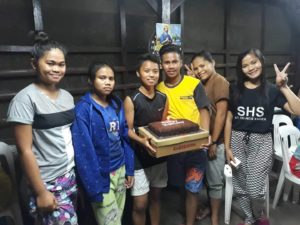
Thank you again for all that you have done and continue to do to support the mission here in Zamboanguita.
God bless you all.
Harvey Mateo SJ
Director, SIHS
Asst. Parish Priest, Parish of Our Lady Mary Mediatrix
February 28, 2019
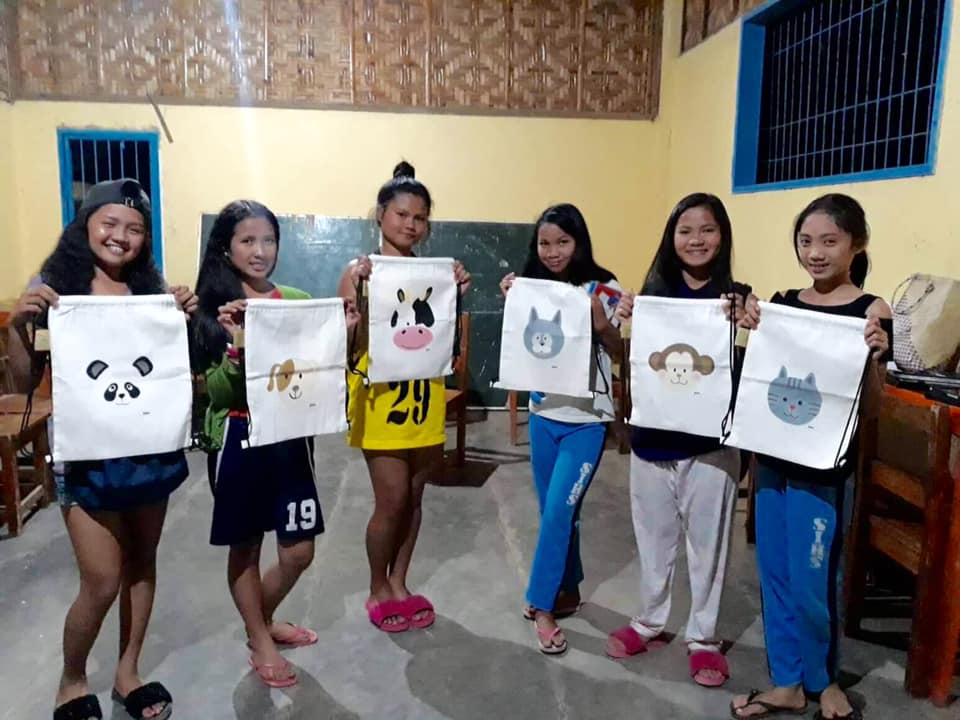
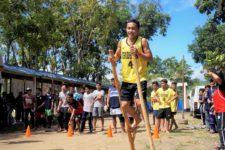
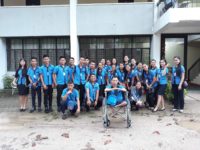

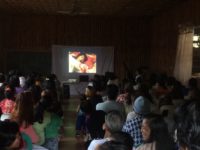

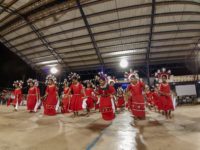
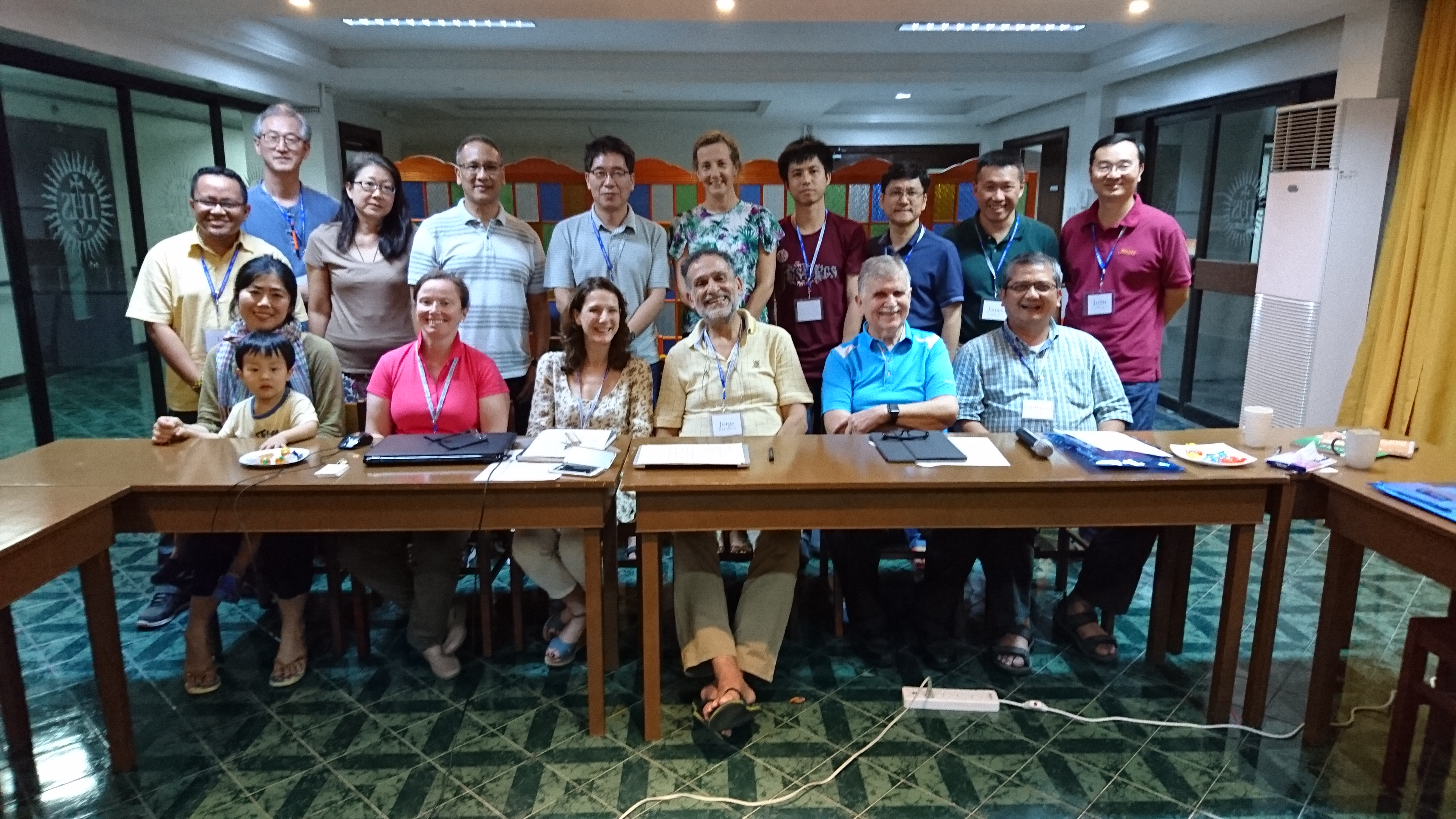
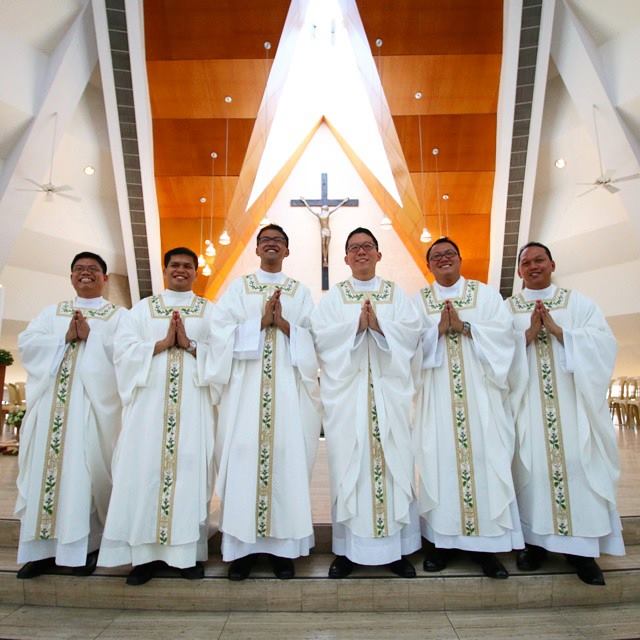
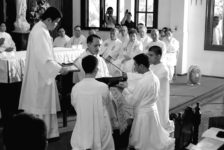

 Prayer becomes a one-sided monologue when we always think of formulations, petitions or thanksgiving. True prayer is silencing the self to listen and learn from God. Our prayers are too scripted and wordy. We focus on our efforts rather than on God’s action. Anthony de Mello said, “The final barrier between us and God is our concept of God . . . Where the self is, God is not.”
Prayer becomes a one-sided monologue when we always think of formulations, petitions or thanksgiving. True prayer is silencing the self to listen and learn from God. Our prayers are too scripted and wordy. We focus on our efforts rather than on God’s action. Anthony de Mello said, “The final barrier between us and God is our concept of God . . . Where the self is, God is not.” Many pray the way Jesus told us not to pray. We use plenty of words and make our practices indispensable. In the Beatitudes, Jesus said that the pure of heart will see God. We cloud the transparency of God’s goodness and truth when we clutter our prayer with too many beliefs and rituals. We distract and deceive ourselves with more form rather than substance. We focus on human tradition and ignore God’s spirit.
Many pray the way Jesus told us not to pray. We use plenty of words and make our practices indispensable. In the Beatitudes, Jesus said that the pure of heart will see God. We cloud the transparency of God’s goodness and truth when we clutter our prayer with too many beliefs and rituals. We distract and deceive ourselves with more form rather than substance. We focus on human tradition and ignore God’s spirit.
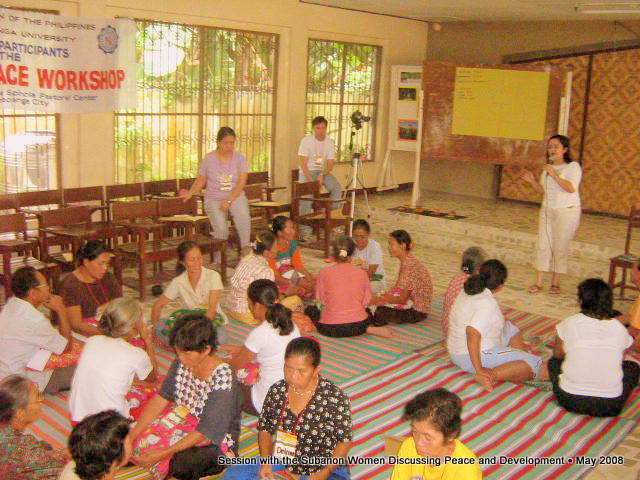
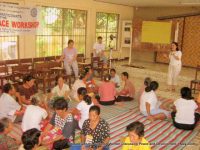 Our work for peace is not simply oriented to promote and preserve tranquility, that is, the absence of war or armed conflict. In persistently conflict-laden societies in Mindanao, however, the mere absence of war can be a great success. Cessation of armed hostilities can save lives even when people continue to live in fear. Nonetheless, our understanding of peace goes beyond simply the cessation of conflict. Peace is comprehensive, development-oriented, culturally embedded and constructed by manifold sectors and communities within society.
Our work for peace is not simply oriented to promote and preserve tranquility, that is, the absence of war or armed conflict. In persistently conflict-laden societies in Mindanao, however, the mere absence of war can be a great success. Cessation of armed hostilities can save lives even when people continue to live in fear. Nonetheless, our understanding of peace goes beyond simply the cessation of conflict. Peace is comprehensive, development-oriented, culturally embedded and constructed by manifold sectors and communities within society.